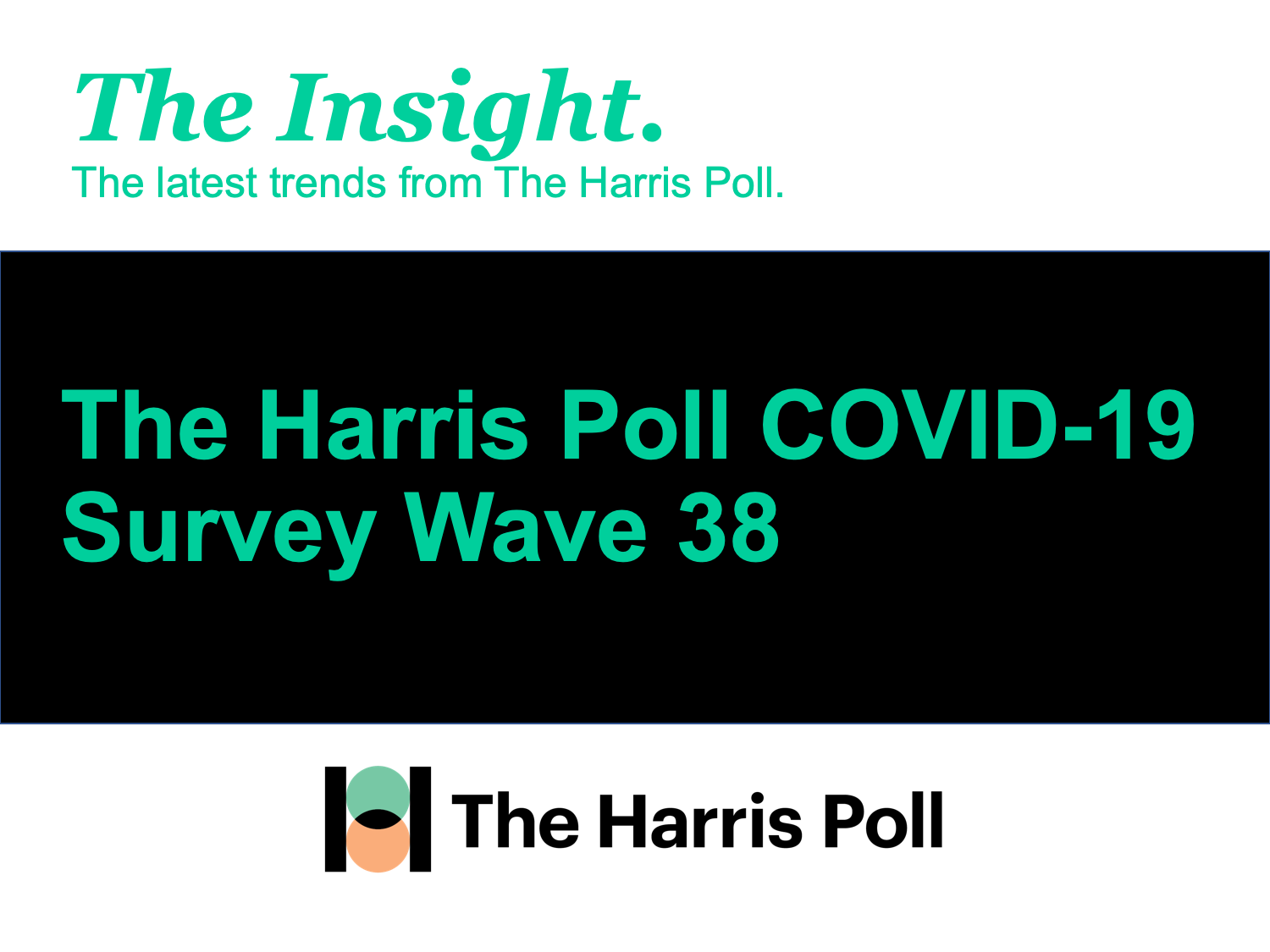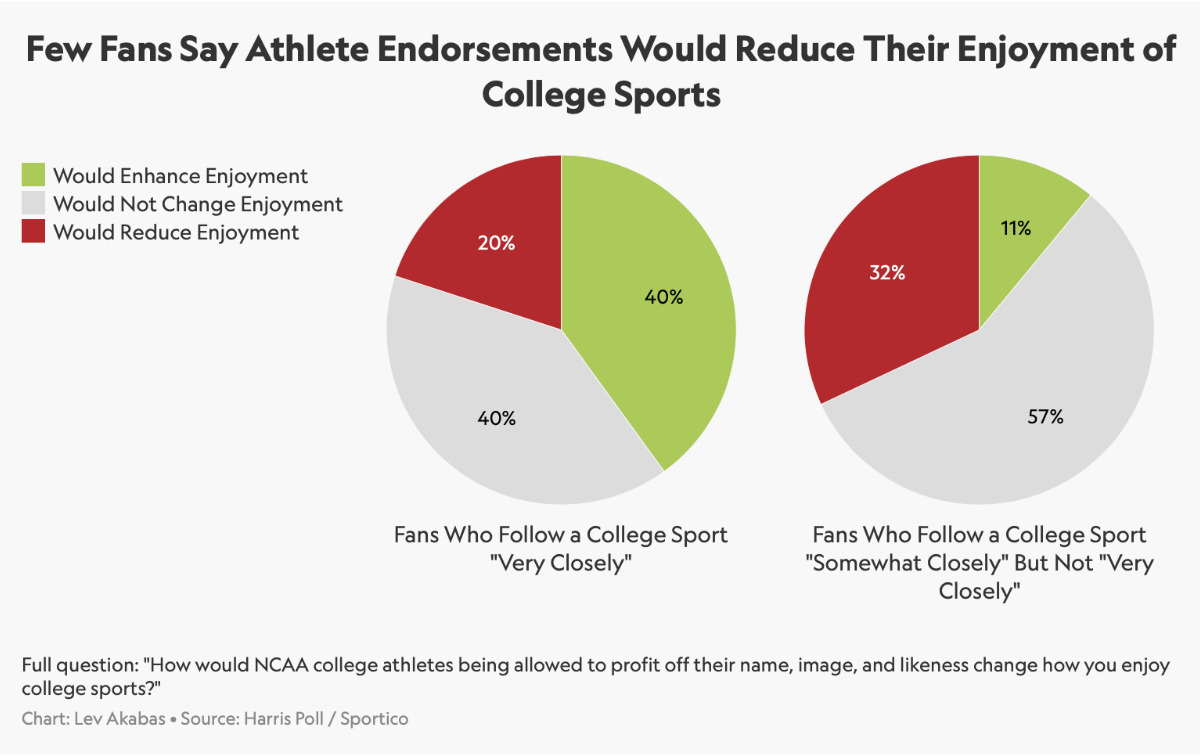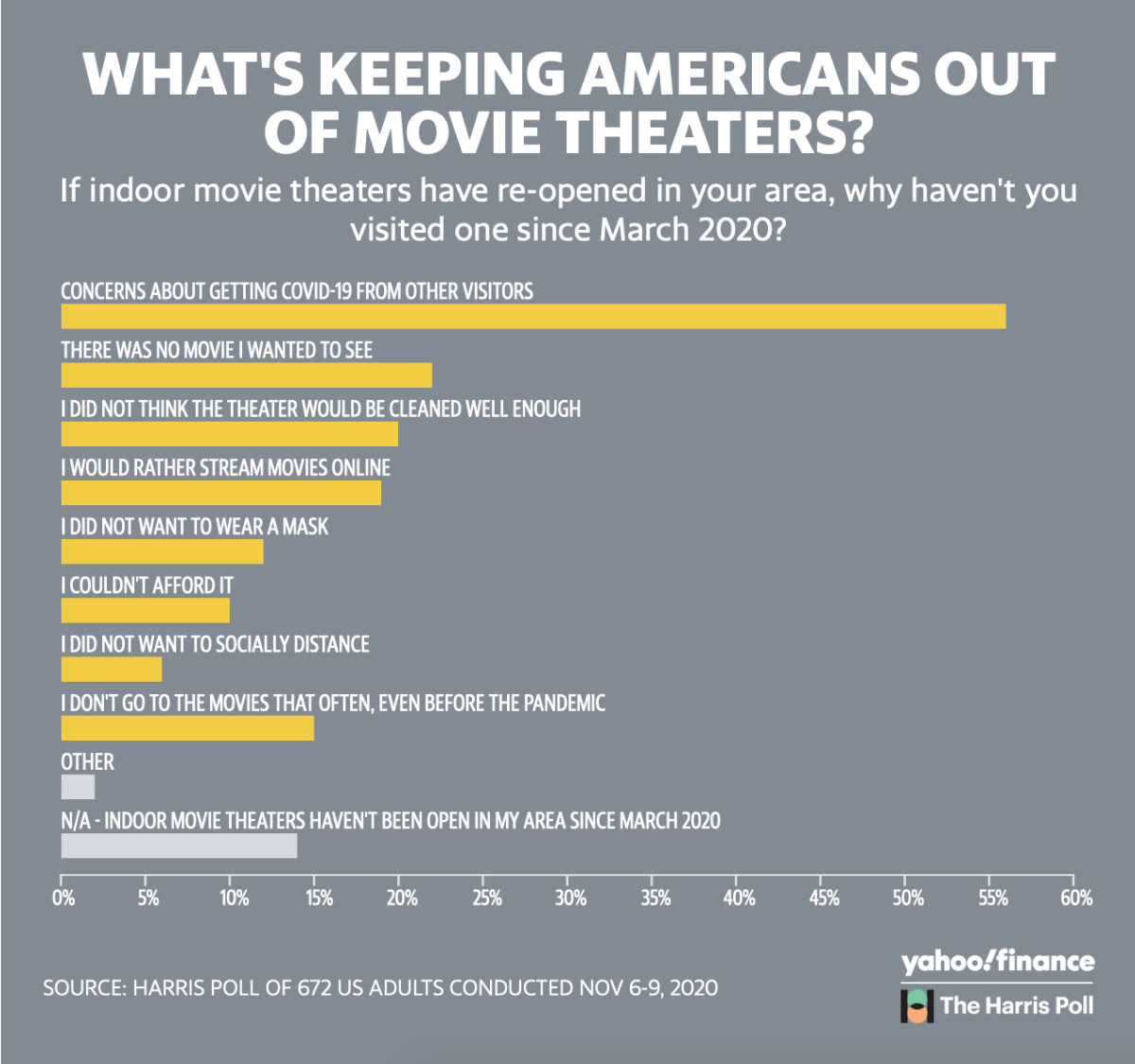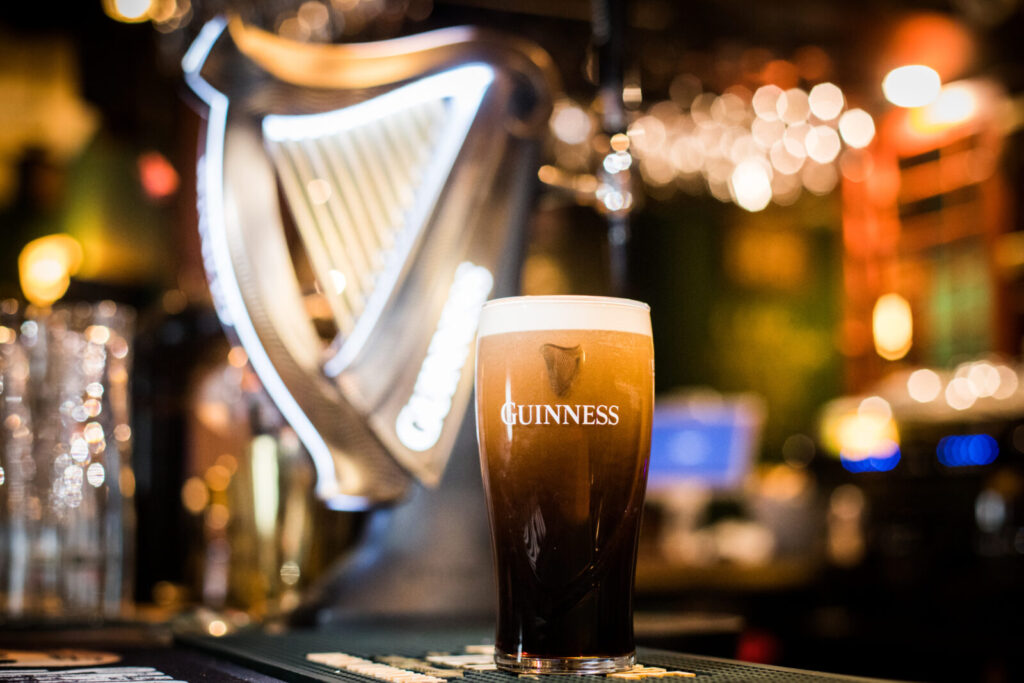Brief • 3 min Read

In The Harris Poll COVID-19 Tracker (Week 38) fielded November 11th – 13th, 2020, we hear from Harris Poll Chairman Mark Penn on what the 2020 election results tell us about the electorate, see how American lifestyles are adjusting to remote work, get a glimpse of what concerts and sporting events will look like post-COVID, discuss a new marketing opportunity in the sports world, and check in on Americans’ attitudes on going to the movies.
As a public service, our team has curated key insights to help leaders navigate COVID-19. Full survey results, tables, and weekly summaries can be accessed for free at The Harris Poll COVID-19 Portal. We will continue to actively field on a regular cadence to track the shifts in sentiment and behaviors as the news and guidelines evolve.
Harris Poll Chairman Mark Penn in WSJ: “America’s Shockingly Moderate Electorate”
Mark Penn, Chairman of The Harris Poll, wrote on Monday for the Wall Street Journal that the 2020 election results were close and split because voters rejected radical changes:
- “We are one country divided by two parties. The nation is largely moderate, practical and driven by common sense over ideology. Most voters prefer compromise on health care, immigration, stimulus and other thorny issues that the extremes of the parties have pushed to the limits. Only 24% of voters identify as liberal, while 38% say they’re conservative, according to CNN exit polls. Another 38% are moderate.”
- “Mr. Biden won almost all the liberals and Mr. Trump the conservatives. But Mr. Biden expanded the Democratic lead among moderates to 30 points from 12 in 2016—the single most significant change. Moderate men swung the race to Mr. Biden.”
- “Any race decided by such small margins could have been won by either side. Mr. Trump failed to improve his character or tone down his rhetoric, and he ran without developing a clear second-term agenda. […] The Biden campaign focused on character, but if character outweighed issues, Mr. Trump would have lost by 20 points. Democrats did win on the virus, which was voters’ No. 2 issue, and that’s likely what put Mr. Biden over the top. Voters made the rather sensible determination that while Mr. Trump might have done a good job with the economy, he did a bad one with the virus.”
Americans Embrace Remote Work; Morning Brew x Harris Poll
This week, in partnership with Morning Brew, a new Harris Poll found the increase in remote working has helped Americans live a more healthy lifestyle. Here’s what we found:
- Two-thirds (67%) of remote workers say their lifestyle has gotten healthier since working from home; (41%) say they’ve been eating healthier snacks throughout the day and (38%) say they’ve been taking time to cook their meals.
- What else is healthier? Work relationships: Around 2 in 5 remote workers (41%) say communication with their manager is more effective since working remotely. What’s more is when asked what they don’t miss about the office, nearly a third (29%) say the office gossip and (26%) say distractions such as over-hearing co-workers on the phone.
- Remote workers are also enjoying a more flexible routine. In fact, if they could split their time between working in an office setting and a remote work setting, Americans would choose to do 2 days in an office setting and 3 days in a remote work setting, on average.
- What would Americans miss if/when they go back to the office? The top three things employed Americans said they’d miss about working remotely, if they had to return to an office, were: saving money by spending less on on gas and lunches each week (41%), extra time in the mornings (40%) and being at home with their family (39%).
- While remote workers are finding their groove in the #WFH lifestyle (that seems to have no end in sight) there are some aspects employees like about the office setting that they can’t get at home such as in-office socializing (31%), their desk setup (28%) and in-person meetings (24%).
Takeaway: Employers are not off the hook: they need to think strategically about how to create a fulfilling work life without the convenience of the office and also be ready to accommodate new demands if/when they return.
Get Ready to Verify Your Vaccine
Last week, we got a glimpse of what events with big crowds – one of the final indicators we’ve returned to some kind of ‘normal’ – may look like in 2021: Billboard profiles Ticketmaster’s new system in which fans will need to validate their vaccination status or a recent negative test using its app before accessing their ticket.
- However, vaccine validation may not be enough to get Americans back into seats. Only half (50%) of Americans say they’d feel safe attending a concert or sporting event with such a system, while (64%) say they’d feel safe enough to go back to the office, and (57%) to attend a work conference.
- “Play Freebird”: more than one-quarter (27%) plan to attend a concert or sporting event (up from 18% in April) as soon as we return to normal, with Gen X (33%, vs 23% of Boomers) the most likely to head to the arena.
- Axios says Ticketmaster’s plan to require a digital health pass for concertgoers might be a model for airlines.
- Test Like a Champion Today: if you watched Notre Dame students rush the field after toppling #1 Clemson the other week and thought crowded stadiums were already back, you likely weren’t alone. Now, the university is ordering all students to be tested for the virus or they will not be able to register for the spring semester.
Takeaway: The efficacy of a vaccine validation system for public events will hinge on vaccine distribution, a looming puzzle we have yet to solve. Meaning businesses will have to continue planning for uncertainty in the immediate and near term where being agile and innovative is critical in order to reach customers across ever-changing touch-points.
College Athlete Endorsement Pay Gets Mild Public Support; Sportico x Harris Poll
Student athlete endorsements in some form will be coming to college sports soon and the public approves. Last week, in partnership with Sportico, a new Harris Poll found the public supports college athletes being able to profit from their Name, Image, and Likeness (NIL), with support even higher among sports fans.
- Support for college athletes being able to earn money from their NIL is significant from college sports fans as a whole (70%), but highest among men’s basketball fans (75%). The general public is less in favor (62%).
- Survey Says: The NCAA has argued in court that athletes being able to profit from endorsements will reduce fans’ enjoyment of college sports, in turn harming the schools and the teams. According to our survey results, most college sports fans say that it would either enhance (28%) or not change (47%) how they enjoy college sports. More than one-third (37%) of women’s college sports fans, in particular, say that it would enhance their enjoyment.
- Most people support some restrictions on player endorsements: three-quarters (75%) of college sports fans (and 70% of the general public) say that players should be prohibited from endorsing certain types of companies, such as sports gambling businesses, despite the fact that universities themselves have recently begun to partner with such organizations.

Takeaway: Will college sports be a new opportunity for marketers? Sports Illustrated tells how “UNC has created a new branding initiative, Blueprint 919, to provide football student-athletes resources to understand and navigate potential opportunities” and is partnering with a brand marketing expert to help athletes “to develop and grow their personal brands.”
COVID Is Not the Only Thing Keeping Americans Out of Movie Theaters; Yahoo Finance x Harris Poll
Pfizer’s positive news about its experimental COVID-19 vaccine on Monday morning sent in-person entertainment stocks surging, including movie theater names like AMC and Cinemark. But for the movie theater industry, the end of the pandemic won’t necessarily prompt an immediate return to boom times. A recent Harris Poll for Yahoo Finance finds that COVID-19 concerns are not the only factor keeping Americans from returning to movie theaters.
- More than half (56%) say they have not been to the movies since March because of concern of getting COVID-19 from other visitors, while (20%) say they worry the theater wouldn’t be cleaned well, and (12%) say they don’t want to wear a mask.
- And the pandemic has made Americans more reluctant to go to a theater next year: 33% of those surveyed said they expect to go to movie theaters less often in 2021 than they did in 2019.
- Among those who haven’t gone to a theater since before the pandemic, half (53%) said a COVID-19 vaccine would make them feel more comfortable.
- The Blockbuster-less Year: Just under one-quarter (22%) say there has not been a movie they wanted to go see, while (19%) say they’d rather stream a movie. Which shouldn’t be of much surprise, given highly anticipated blockbusters like Dune and Black Widow have been delayed until late 2021 in hopes people will be able to return en masse by then.
- The Streaming Wars: Among those reluctant to go to a movie theater in 2021, (31%) say it is cheaper to watch movies at home and (25%) say it is because fewer movies are being shown in theaters now.

Takeaway: Movie studios are driving the trend away from movie theaters and to the home screen by postponing or skipping theatrical release, a practice that accelerated during the pandemic when theaters were closed, but is now expected to continue even beyond the pandemic. And some movie studios are quickly adapting: on Monday, Universal Pictures “struck another deal […] to shorten the theatrical window from three months to as little as 17 days in an effort to adapt to the new business realities of moviegoing.”
Subscribe for more Insights
Subscribe to our newsletter for the latest trends in business, politics, culture, and more.
Download the Data
This survey was conducted online within the U.S. by The Harris Poll from November 11 to 13, 2020 among a nationally representative sample of 1,963 US. adults.
Download
Subscribe for more Insights
Subscribe to our newsletter for the latest trends in business, politics, culture, and more.
Download the Data
This survey was conducted online within the U.S. by The Harris Poll from November 11 to 13, 2020 among a nationally representative sample of 1,963 US. adults.
DownloadRelated Content








